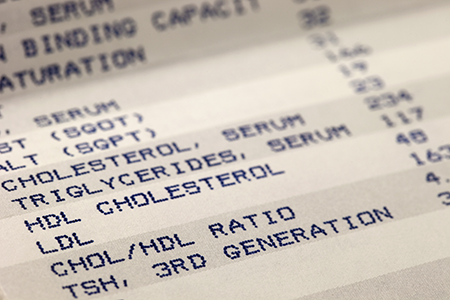Making the Most of Your Physician Appointments

Being involved means being prepared. Taking the time to prepare for your appointments can help reduce anxiety, lower health costs, and help achieve better health outcomes.

Before Your Appointment
- Verify the provider accepts your insurance
- Make a list of symptoms you are experiencing
- Make a list of medications, vitamins, and supplements you are taking
- Create a timeline of your health history
- Ask someone to attend the appointment with you
- Gather and bring necessary medical records, including CDs of imaging studies
- Prepare a list of questions to ask the doctor
- If a telemedicine appointment, review information to understand how the platform works

During the Appointment
- Answer questions about your health honestly
- Ask questions in order of importance
- If you don’t understand something, ask the doctor for clarification
- Take notes or bring someone to take notes for you
- Ask the physician to summarize their recommendations
- Clarify next steps for follow-up
- Ask for copies of test results

After the Appointment
- Follow the treatment plan that was agreed upon by you and the doctor
- Seek a second opinion, if appropriate, our Nurse Navigators can assist you with finding one
- Make follow-up appointments and attend them
- Call the office with any questions or concerns
- Set up your patient portal. More doctors are communicating via email through the patient portal and this can be a quick way to reach them.

When to Call Your Doctor
- Your symptoms get worse
- Experiencing side effects/problems with your medication
- You start any new medications
- You need results of tests that were ordered
- You need help understanding test results

Questions to Ask Your Doctor
- What is causing my symptoms?
- Do I need any diagnostic tests?
- What are my treatment options?
- What are the risks and benefits of each option?
- What treatment option do you recommend?
- What is your experience treating this type of diagnosis?
- Is there any written material or credible websites I can use to learn more about my diagnosis?
- Who should I contact if I have questions once I am at home?
- What symptoms should I notify you about?
- What are the next steps?
- What is the best way to reach you? Do you prefer email in the patient portal or a phone message?

What to Include in Your Health Timeline
- Family health history
- Medical conditions
- Lists of physicians you see
- Surgery history
- Lab or diagnostic tests and results
- Current symptoms, including onset, severity, duration, and treatment
- List of current medications, vitamins and supplements; including dose, frequency and the prescribing physician.

How can ConnectCare3 help?
As a member of ConnectCare3, you have access to the support of patient advocates, nurse navigators and wellness professionals, all available confidentially and at no cost to you.
ConnectCare3 will support you by:
- Providing education about your diagnosis to ensure you have a thorough understanding.
- Researching well-credentialed specialist options as well as the latest treatment options.
- Providing information to help you secure copies of your medical records.
- Developing a list of questions and concerns to review with your doctor.
- Providing ongoing follow-up throughout your treatment.

Download the Free Resource
Access a printer-friendly version of the resource to reference later.